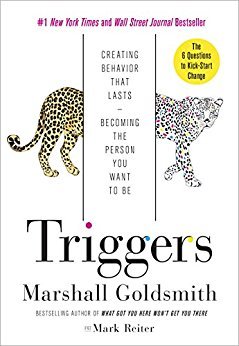More on this book
Community
Kindle Notes & Highlights
Read between
March 11, 2018 - February 12, 2023
Dealing all day with difficult, high-maintenance colleagues is depleting.
Maintaining a compliant façade around a leader you don’t respect is depleting.
Excessive multitasking is...
This highlight has been truncated due to consecutive passage length restrictions.
Suppressing your opinions—or for that matter, engaging in any effort to control your emotions around others—is depleting.
Unlike being physically tired, however, we’re usually unaware of depletion.
Depletion, like stress, is an invisible enemy.
Under depletion’s influence we are more prone to inappropriate social interactions, such as talking too much, sharing intimate personal information, and being arrogant. We are less likely to follow social norms;
Hans Selye’s discovery of stress in 1936
Any effort to contain our normal impulses in the face of other people’s obstinacy can be high depletion. It builds up incrementally, so that by day’s end we are not functioning at our best.
Making big decisions late in the day is an obvious risk.
SWI, spending while impaired—make
Structure is how we overcome depletion. In an almost magical way, structure slows down how fast our discipline and self-control disappear. When we have structure, we don’t have to make as many choices; we just follow the plan. And the net result is we’re not being depleted as quickly.
surliness
depletion-fighting structure
I can’t have enough structure in my day.
the more structure I have, the less I have to worry about. The peace of mind more than compensates for whatever I sacrifice in autonomy.
cede
Some people are mavericks. They chafe at the imposition of any rule or routine, as if their self-generated discipline is morally and aesthetically superior to externally generated discipline. I get it. We like our freedom. But when I consider the behavioral edge that structure provide...
This highlight has been truncated due to consecutive passage length restrictions.
We rely on structure to govern the predictable parts of our lives.
We need help when we’re least likely to get it.
Our environment is loaded with surprises that trigger odd, unfamiliar responses from us. We end up behaving against our interests. Quite often, we don’t even realize it.
My father was the first person I loved who died. I was in shock. So I behaved like a man in shock. I neglected people that mattered. I ignored deadlines. I didn’t return phone calls. People quickly chose to stop doing business with me. I see it now but only because of the damage I did to myself.”
The sloppy work habits were triggered by his father’s sudden death—and his inability to deal with his grief.
Derek either scoffed at or didn’t have access to this kind of therapeutic structure. He only appreciated his dilemma after the fact.
When he needed help, he made sure he wouldn’t get
common interpersonal challenges where we respond poorly without structure. What kind of structure are we talking about? It should be a simple structure that (a) anticipates that our environment will take a shot at us and (b) triggers a smart, productive response rather than foolish behavior.
I suggest that simple structure is a variation on the Daily Questions, a process that requires us to score our effort and reminds us to be self-vigilant. It’s a structure that alters our awareness profoundly.
perfunctory
imagine at meeting’s end you will be tested—just you—with four simple questions about how you spent that hour: 1. Did I do my best to be happy? 2. Did I do my best to find meaning? 3. Did I do my best to build positive relationships? 4. Did I do my best to be fully engaged?
If you knew that you were going to be tested, what would you do differently to raise your score on any of these four items?
Everyone has good answers. That’s the motivational kicker in knowing you’ll be tested afterward. It turns the indifferent environment of a boring meeting into a keen competition with yourself. It makes you hyperaware of your behavior. The specter of testing triggers a natural desire to achieve something that reflects well on you,
scoring well on happiness, meaning, engagement, and relationship building.
For the one hour you find yourself in that dreaded meeting, you’re giving yourself help when you need it most.
magnanimous
curmudgeonly,
when we decide to behave well and our first steps are successful, we often achieve a self-fulfilling momentum—Griffin called it “cruise control”—where we don’t have to try as hard to be good.
Good behavior becomes the sunk cost we hate to sacrifice.
segue
Pre-awareness
Commitment.
Awareness.
Scoring.
Repetition.
mulligan
obtuseness
intransigence
overindulgence.
I tell myself that I won’t eat the wonderful dessert. Sometimes I make a pact with the person sitting next to me: neither of us will succumb to the temptation of dessert. Sometimes, like Odysseus putting wax in his sailors’ ears, I ask the waitstaff to ignore me if I attempt to order dessert. But the most important structural element remains: I test myself every hour with the question, Did I do my best to enjoy who is here rather than what is being served?
summa cum laude.
Even when I give myself middling grades, that heightened awareness is a net gain. The more I rely on this kind of self-testing for acute situations, the stronger my awareness, until it’s a permanent part of who I am. That’s a meaningful and lasting change I can live with.


